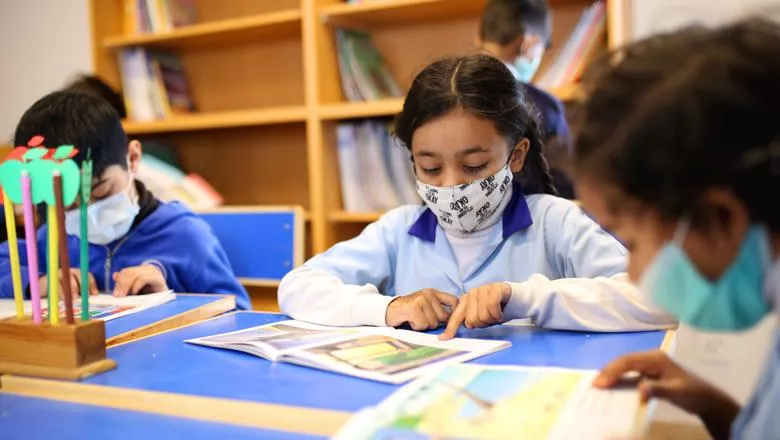It is imperative that we understand, quickly, the impacts of the pandemic and related social restrictions and school closures on the mental health of young people, particularly young people in marginalised and vulnerable groups. This is so we can develop and implement, again quickly, measures to mitigate these impacts, to ensure – as we emerge from the pandemic – that all young people are enabled to flourish.
Professor Helen Fisher, ESRC Centre for Society and Mental Health, King's College London
08 October 2021
New policy briefing calls for action to mitigate the impacts of the pandemic on the mental health of young people
Researchers at King’s College London and Oxford University have outlined a series of recommendations to address anticipated short- and long-term challenges facing UK children and young people as a result of the pandemic.

The policy briefing has been jointly produced by the ESRC Centre for Society and Mental Health, Emerging Minds, and The Policy Institute, following the delivery of a policy lab in early 2021. The lab was held as the culminating event of “Youth Mental Health and Covid-19: What do we know and what should we do” - a jointly run conference exploring the impacts of COVID-19 and related responses on the mental health of young people in disadvantaged, marginalised, and vulnerable groups. Individuals representing policy, academia, civil society and schools, as well as young people, including those with lived experience of mental health issues, and parents and carers, were invited to participate in the discussion.
During the policy lab, a range of challenges affecting UK children and young people in the short- and long-term were identified and reflected upon. Three key themes emerged:
- The pandemic has had multiple impacts on education and daily life – particularly the impacts of social isolation, academic pressures, and transitions to online learning. Readapting to the school environment may also bring further challenges.
- There has been severe disruption to support services – while children and young people experience these mental health challenges, there has been limited access to effective and diverse types of support.
- There are wider impacts of loss, trauma and financial security – children and young people have been affected by the challenges and losses that their families, communities, and wider society has experienced throughout the pandemic.
Potential solutions to the above challenges were discussed, producing the following recommended actions focused on three different settings: schools, mental health services, and the wider policy and practice environment.
In seeking to limit the impacts of the pandemic on young people and provide much needed supports, we need a multi-pronged approach that incorporates actions in each of these settings. This is so that we can foster the environments in which young people can thrive – in communities, in schools, and at home – and provide the mental health care that an increasing number of young people need.
Professor Cathy Creswell, Director, UKRI Emerging Minds Network and Professor of Developmental Clinical Psychology, University of Oxford
Recommendations range from review of and investment in digital education tools, equipping school staff to normalise conversations about mental health, increased flexibility in modes of learning, and open access to mental health resources for young people. There is also a call for reforms to the benefit system and universal credit, and an exploration the feasibility of implementing a guaranteed income scheme.
There is currently widespread concern about the mental health of young people. These recommendations provide policy makers, school leaders, and service providers with concrete actions that they can take to address these concerns and to promote mental health and well-being among the many young people who have been adversely affected by the pandemic.
Professor Craig Morgan, ESRC Centre for Society and Mental Health, King's College London
For more information visit: www.kcl.ac.uk/youth-mental-health-and-covid-19
If you have questions about the briefing, please email csmh@kcl.ac.uk
Download the Briefing Note
Click the link below to download the full briefing.
Further information
Development of the Policy Briefing has been led by The Policy Institute, the Emerging Minds network, and the ESRC Centre for Society and Mental Health:
The Policy Institute at King’s College London works to solve society’s challenges with evidence and expertise. We combine the rigour of academia with the agility of a consultancy and the connectedness of a think tank. Our research draws on many disciplines and methods, making use of the skills, expertise and resources of not only the institute, but the university and its wider network too.
The Emerging Minds Research network is part of the Cross-Disciplinary Mental Health Network Plus initiative supported by UK Research and Innovation. For more information see: https://emergingminds.org.uk/
Development of the Briefing within the Centre for Society and Mental Health was led by members of the Young People and Social Change research programme. The Programme investigates how social changes impact mental health of young people, and how short-term fluctuations in mental health turn into long-term problems. You can find out more about the Programme here: https://www.kcl.ac.uk/csmh/research-programmes/young-people






